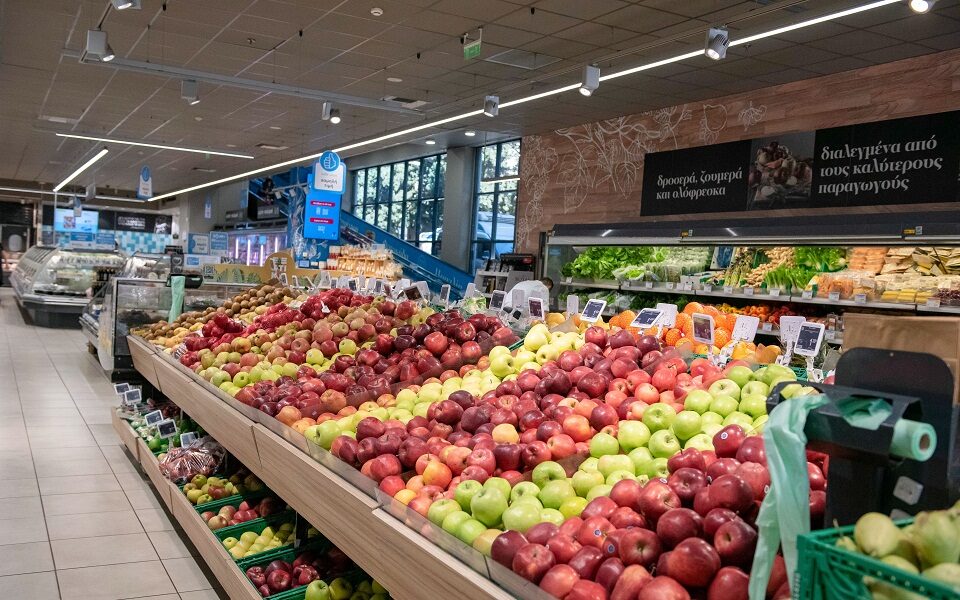‘Champion’ of food inflation
Greeks witnessed the greatest increase in food prices in the European Union last month

In January Greece had the highest food inflation, not only among the member-states of the eurozone, but also among the 27 member-states of the European Union.
This alarming lead is revealed by Eurostat’s final figures for the harmonized index of consumer prices, released on Thursday, just eight days before the new anti-inflation measures recently introduced by the government start applying. It is recalled that the harmonized consumer price index in Greece was at 3.2% in January 2024, against 2.8% in the eurozone.
Food inflation in Greece stood at 8.3% in January compared to 5.4% in the eurozone and 5.1% in the EU, while very high price increases were recorded in Greece on an annual basis in a number of basic food items.
In olive oil, a 67.4% price increase was recorded in January compared to January 2023, the second highest after Portugal (69.1%), while at the eurozone level the increase in the price of olive oil on an annual basis reached 49.5%. Vegetables recorded the fourth largest increase in the eurozone, 14%, while fruit also posted an increase of 14%, the second highest after Cyprus (15.3%).
Significant hikes have been observed even in food items that in the previous two years saw less intense price rises, such as fish and meat: The price of meat in Greece rose by 6% in January compared to January 2023, which is the third largest increase in the eurozone, while the price increase in fish was 7.7%, also the third highest in the eurozone.
The data also show that in Greece, baby food is very expensive in absolute terms. This category was 9.5% more expensive in January compared to a year ago, an increase that is the fourth largest in the euro area.
Even in cheese products, where a slowdown in price growth has been recorded, it still remains high compared to other eurozone countries. In particular, cheese prices were 4.5% higher in Greece in January compared to a year ago, an increase that is the third highest in the eurozone and far from the average increase in the eurozone (0.4%).





